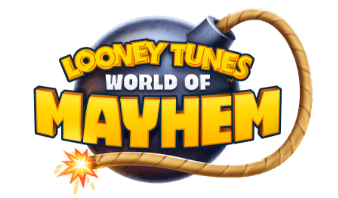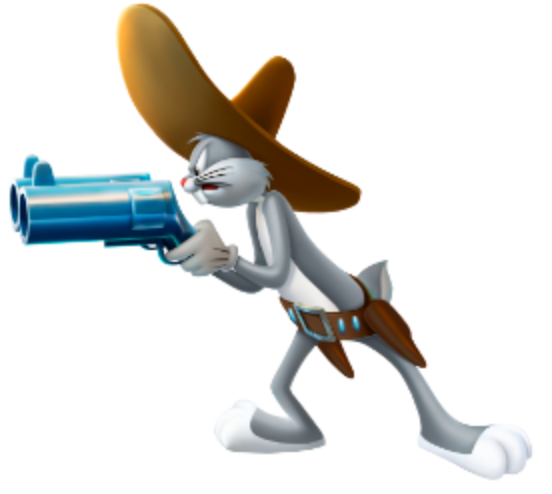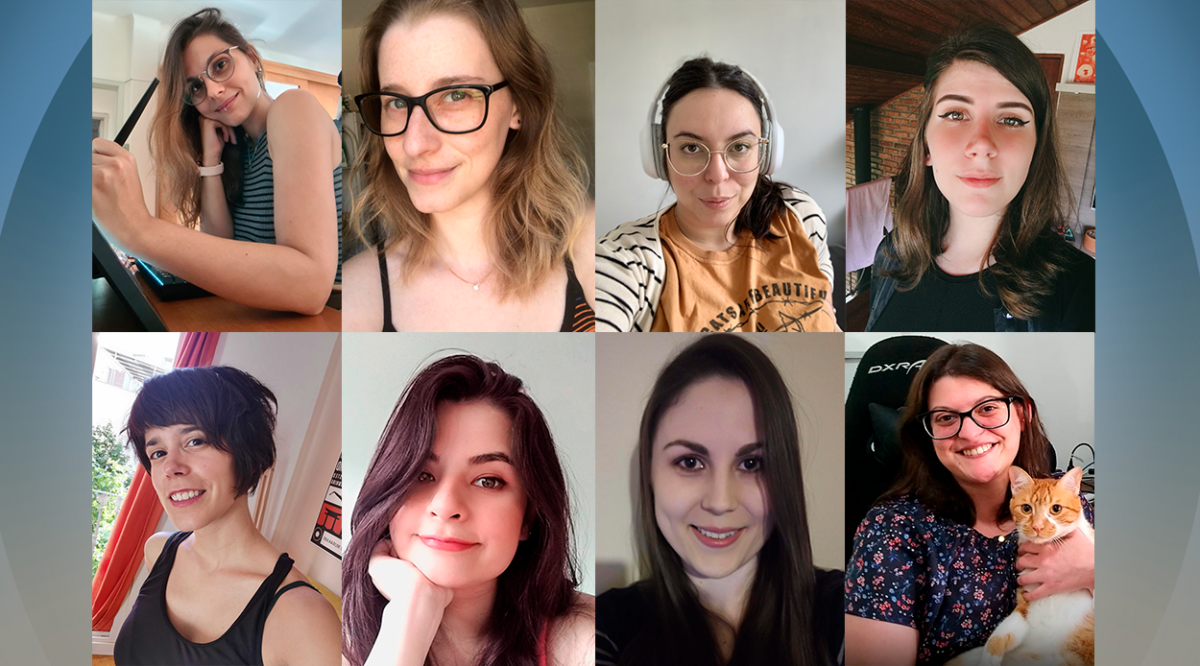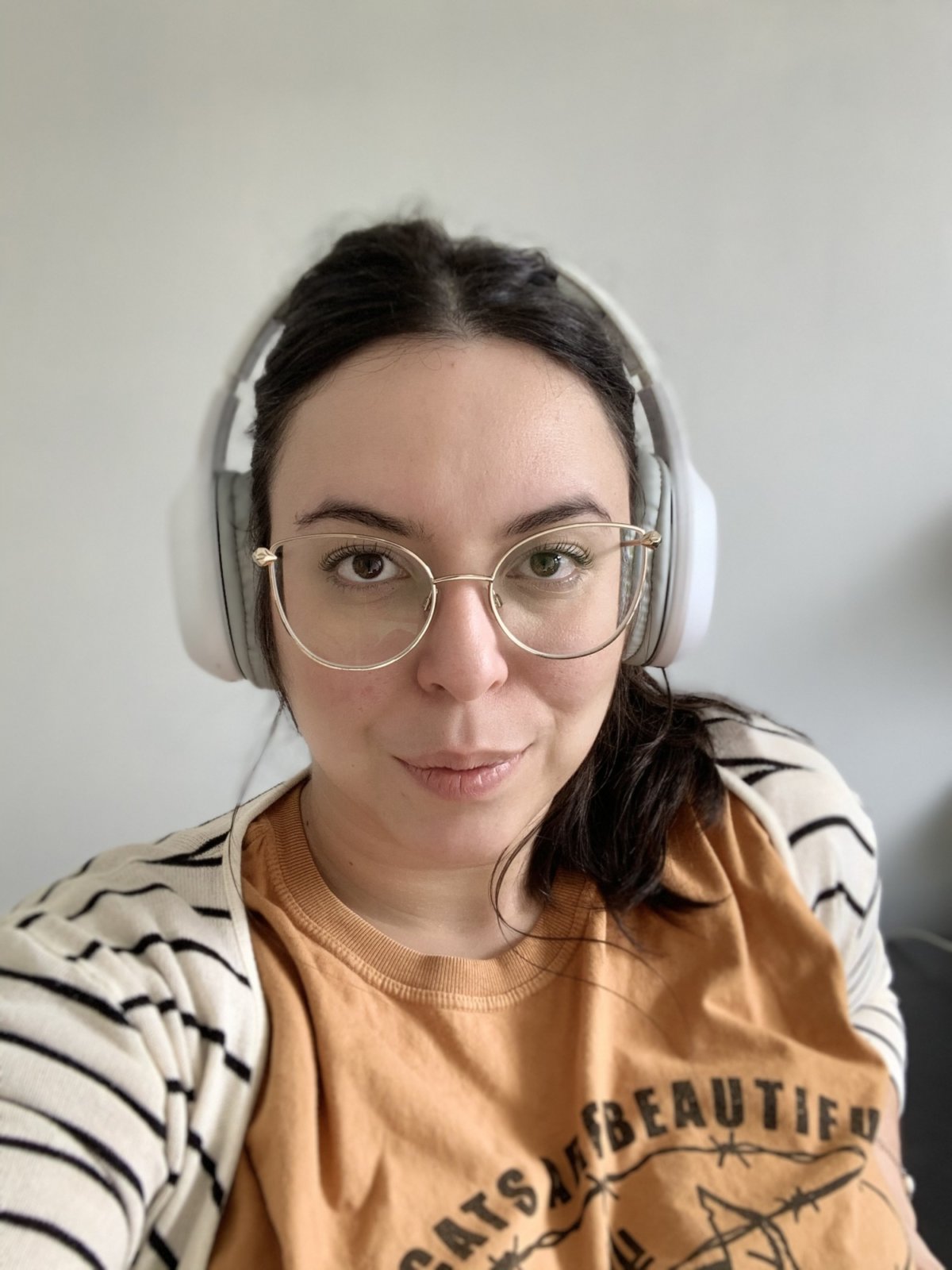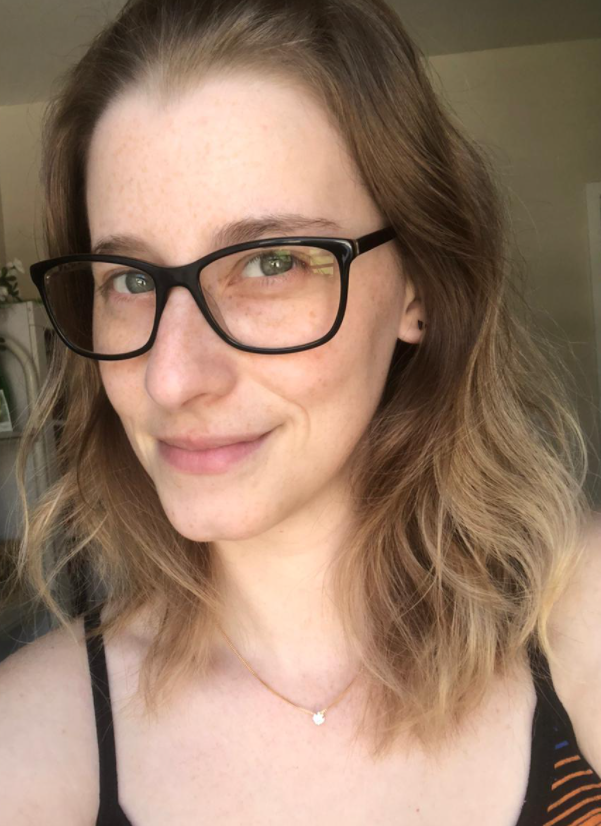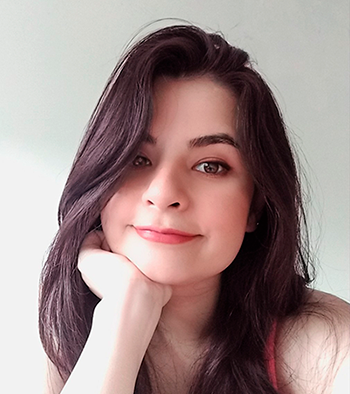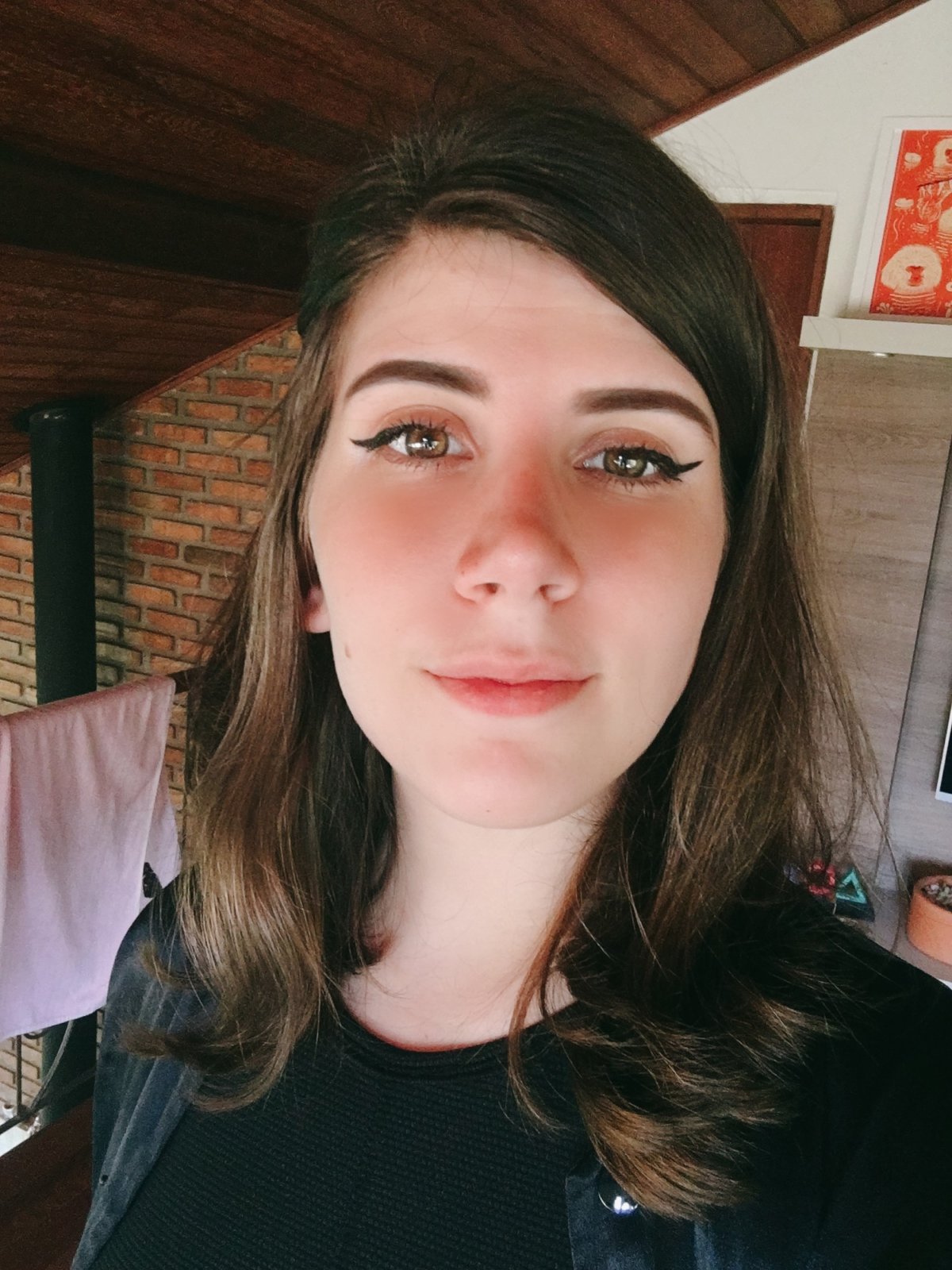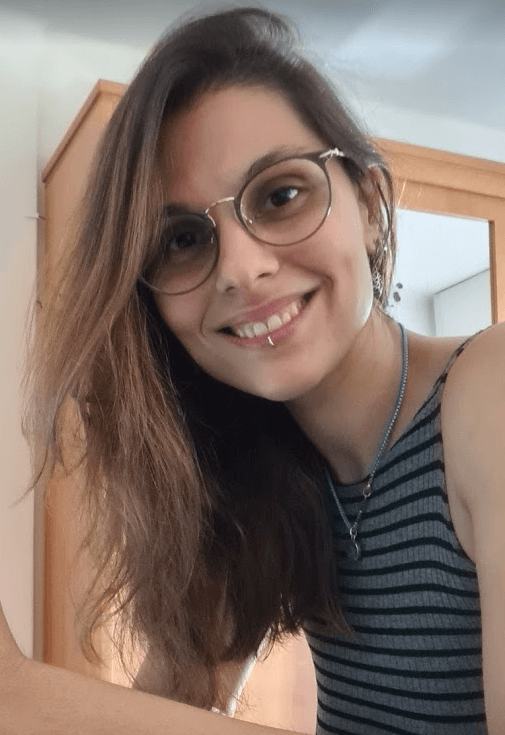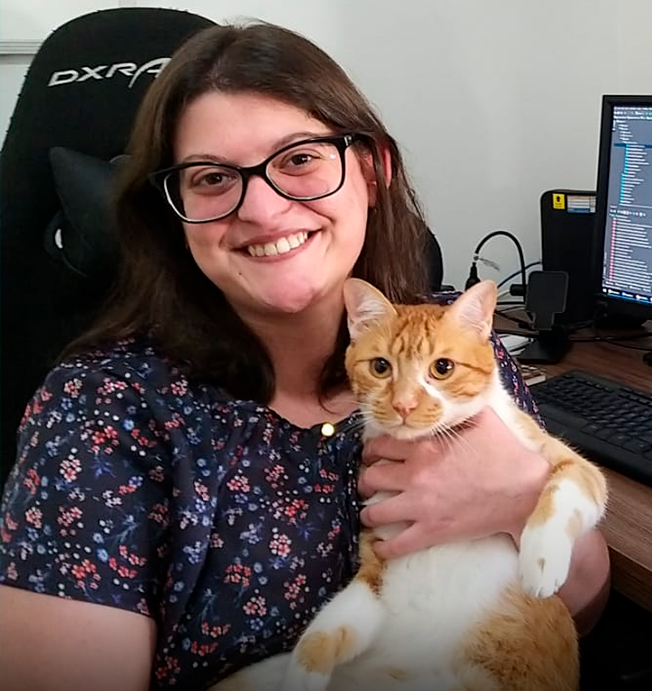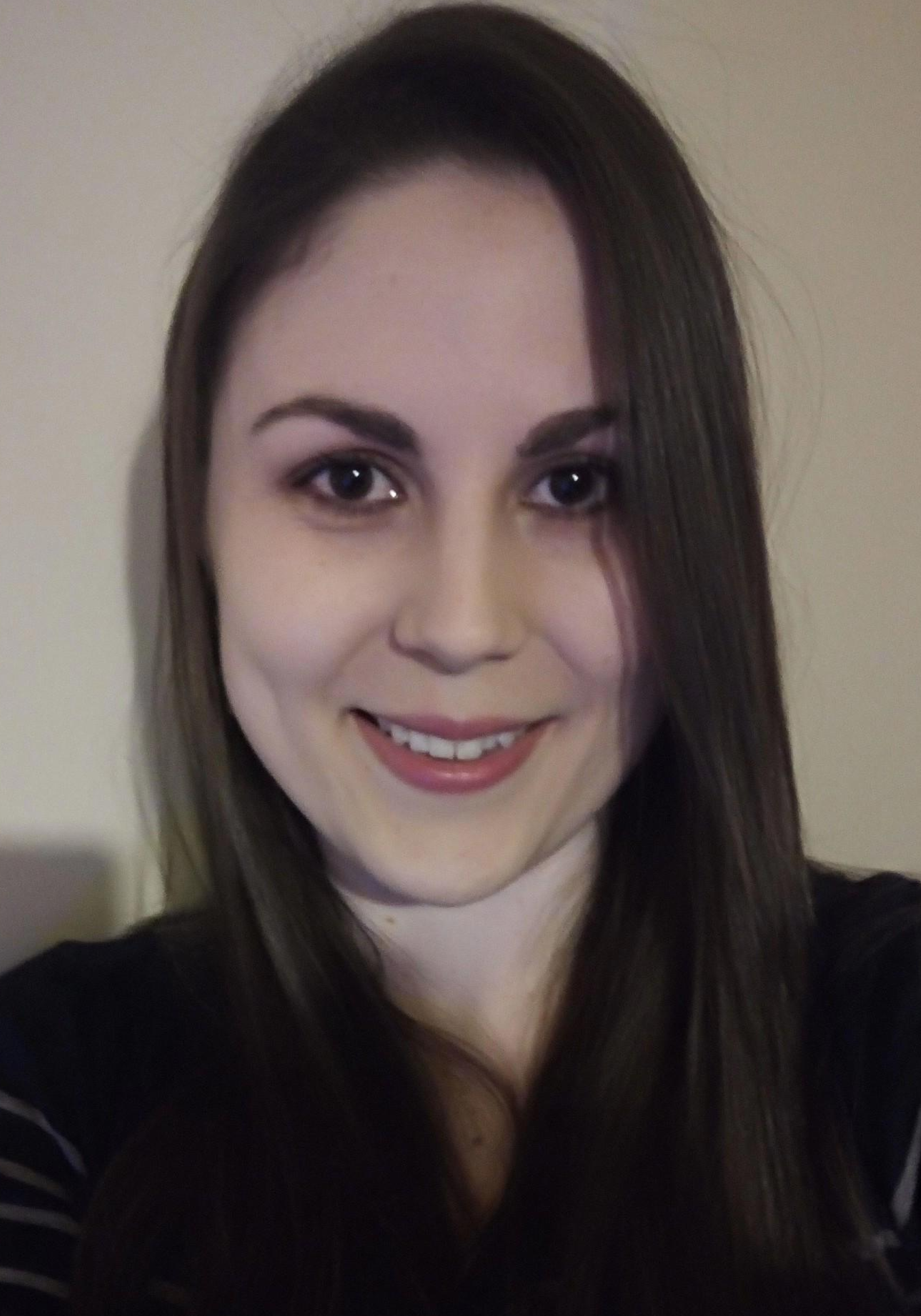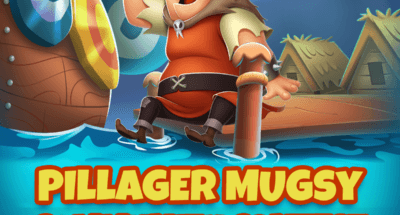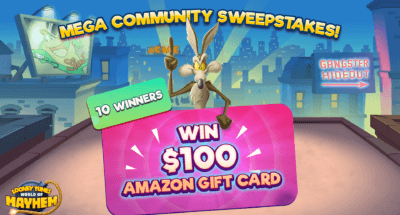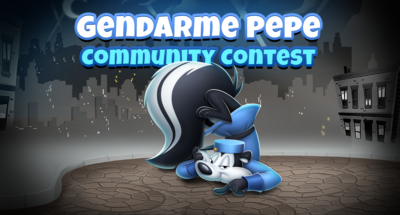What’s up, guys?
Today it’s International Women’s Day so we thought it would be a good idea to gather a few of our awesome developers of Mayhem and get us speaking about our experiences in the game and the industry in general. For this, we (metaphorically) crossed half the world: from Brazil to the USA, making a stop in Spain, and asked different departments for their input.
Our eclectic bunch is composed by Haruki, community manager; Marisa, Live Operations Manager; Mariana, Associate Producer, Flora and Renata, Backend Developer; Ilona and Bruna, Concept Artists; and Cloé, Carina and Camilla, UI/UX Designers.
We hope you enjoy this special interview of Mayhem – of we go!
______________________________________________
Question 1: How long have you been in the videogame industry?
Haruki: Lemme think about it… Pewh, it’s already like 7 years ago. Man, time flies!
Ilona: For about 8 years now.
Cloé: For about 5 years, between comings and goings.
Mariana: It’s been 2 years and 7 months.
Marisa: Started professionally about 5 years ago, but I’ve been making games for almost as long as I can remember!
Camilla: For about 4 months.
Haruki: Oh, oh, rookie spotted!
Missae: Professionally, around 8 years.
Flora: It’s been almost 6 years.
Renata: Almost 1 and a half years.
Bruna: It’s been about 5 and a half years, give or take 🙂
Question 2: And in the World of Mayhem team?
Ilona: 1 and a half years give or take.
Cloé: 9 months.
Camilla: Also 4 months.
Missae: A little more than a year.
Marisa: Also-also about 4 months.
Renata: Also, almost one and a half years.
Mariana: The same, almost one year and a half!
Haruki: I may be the veteran? I joined the team back in the summer of 2018. We were right into beta and getting everything ready for our December launch… A lot of things have changed ever since but the fun levels have been constant.
Flora: Nope! I am the Looney veteran here! Over 5 years already, since October 2015. Bruna is also older, she joined a few months after me.
Bruna: Yeah, I’ve been in LTWoM for as long as I’ve been working with games, so that’s 5 and a half years now, me and Flora have been here since pre-production.
Question 3: I believe we all come from different backgrounds, right? What did you guys study? How did you get into videogames?
Ilona: I studied Game Architecture and Design at NHTV, a dutch university in Breda – The Netherlands. Before that, I studied animation for a short time. I first got into the industry when I started to work on a project that had won a Game Jam (FRU)! From there I worked on multiple other projects at university.
Haruki: My university background is connected to humanities: History and Art, Philosophy and Literature. I tend to joke about my profession saying that I started studying history to end up telling stories… But it’s pretty common for profiles like mine to end up reinventing themselves and end up somewhere different. Videogames have always been a part of my life as a hobby. And I guess my life performed a 180º spin when I discovered I could put some of my skills into this emerging job thing called “community management”.
Marisa: As for me, I guess my parents saw that I liked playing games, so they put me in a summer camp about learning to make games. That turned into a hobby, and from there I studied Computer Science and Game Design in California.
Mariana: I studied business administration at UFSM (Federal University of Santa Maria). I chose it ‘cause I was very interested in knowing how to be efficient and how to lead a group of people around the same objective with the best possible quality of life.
I believe the journey started even before the first professional experience I had, by winning a Game Boy Color when I was a child. I just loved it! I believe that our passions choose us. At the end of graduation, all students are supposed to choose a company to make an internship, so I started researching companies and discovered that there was a virtual reality game studio inside the university business incubator. There was not even an advertisement for a vacancy. I got in touch anyway and the founder of the studio told me he was writing a vacancy right away, we laughed at it. It was fate!
Cloé: I studied Product Design at IFSC (a tech institute in Brazil) and now I’m about to finish my second MBA in UX Design. Back in college, I fell in love with the HCI (Human-Computer Interaction) discipline and start to look for internship opportunities when I found a position in the game industry. At that time I was on cloud nine because I start working with Interaction Design and games <3.
Camilla: This is my first experience in the videogame industry, but I’m a designer for about 12 years. During this time I’ve worked in different industries, such as education, health, and finances. In one of those experiences, I worked with Cloé, so a few years later here we are working together again!
Missae: I studied Design at USP (University of São Paulo) and always wanted to work with games since I fell in love with Zelda Ocarina of Time (oh! The cliche, but it’s true), that’s when it first clicked to me “Someone had to make that… Can I do it too?”. So college was really just a way for getting into the game industry. Since then almost all the internships and jobs I got were on games: from Orkut (RIP), to mobile, to pc, to PlayStation. Always working with Ui, which I love, it feels like solving puzzles by organizing information. Now I’m focusing my studies to specialize in UX as well.
Flora: I also studied Computer Science. When I started studying, working with games was my dream – I have been a videogame nerd since I was 5 – but I was not sure it would be possible. I was very fortunate to meet Aquiris folks and join the team when I was just a programming student.
Haruki: Yeah, it’s a really small industry. One of my leads here, she was also my boss in a previous company. We were working on two opposite sides of the world. And then reunited in Barcelona – but she’s a cool leader, you know, cannot complain (and should not, as maybe she’s reading this…).
Renata: I study computer science and was following the academic path. I met Flora at the UFRGS robotics lab some years ago and when she told me about how good it was to work at Aquiris, I didn’t think twice. It has been a great experience so far.
Bruna: Sometimes I wonder how I ended up where I did. I studied Advertisement at PUCRS, but was always an illustrator, even my internship was as an illustrator at the technology museum at PUCRS. I ended up working in illustration studios focused on advertisement, and I did that for about 2 years after I graduated. Then I saw an opening at Aquiris for a concept artist, applied for it, failed miserably at my first attempt at the test later that day, quit my job later that week thinking I should be studying to work with things I love, like videogames, and got the job before I had the chance to send the test. I’ll be forever grateful for the opportunity, and I couldn’t imagine myself working with anything else. Except maybe book covers. That I’d also love.
Question 4: Did you always know what you wanted to do with your lives? Have you always done the same thing?
Ilona: I always knew I wanted to do something creative, I like to draw, paint, sew, all things art-related in general always picked my interest. I kind of decided I wanted to work on games after I played Crash Bandicoot on my PS1, I thought it would be exactly the type of thing I would like to work on as an adult, and I continued thinking that way the more I played games, especially “Naughty Dog” games.
Marisa: Hey, Crash is also one of the games that got me into games! I didn’t know I wanted to make games, or even that it was an option at the time, though. Throughout my school years, I used my free time to make (and help other people make) games, so when it came time to choose a field of study, I thought “well, I have some experience with this sort of thing, so I guess I’ll try that.” Been around ever since!
Cloé: Just like Ilona said, I always knew I wanted to do something creative. So I saw in Product Design the opportunity to experiment with different industries until I dive into the tech industry. As I mentioned before, I started in videogames but at that time (about 12 years ago) UX Design was taking its first steps and I felt that I need to move on to different markets (like healthcare and legal techs) to go deeper into this discipline. Even so, I kept in touch with my network and kept working on some side projects as a freelancer.
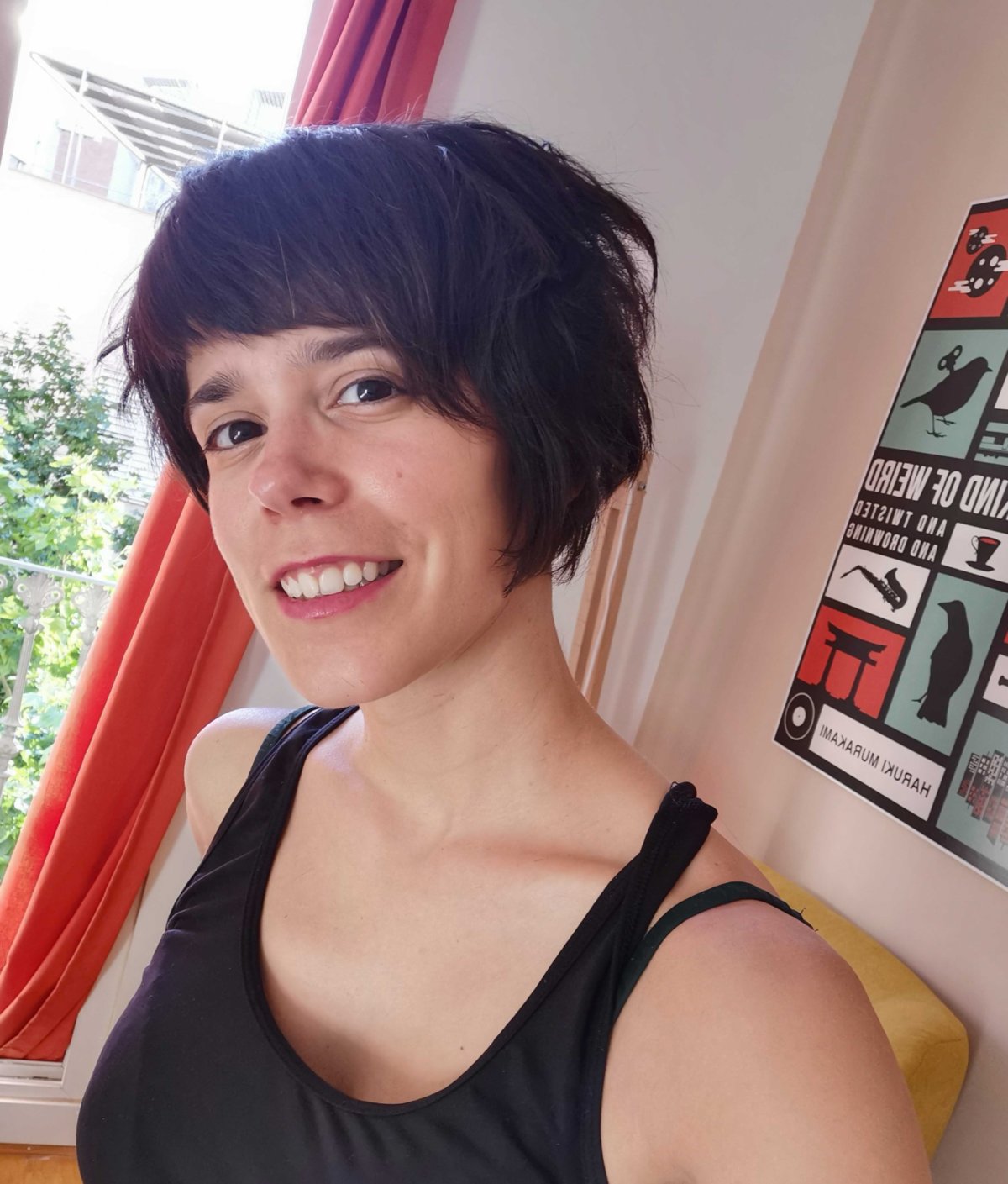
Haruki: Well, uncertainty is part of the journey, right? Also the capacity to go with the flow. As I’ve mentioned before, sometimes in life you end up with a chameleon skin and adapt to whatever comes your way. I tried my luck with a few museums and some editorial work right after university… but it did not click, somehow. So I kept on searching and trying new things until I found a role and a mission that ticked a lot of personal boxes.
Camilla: I didn’t really know what I wanted to do, but I knew I wanted to create stuff, so I studied Graphic Design. My first working experience was already in the tech industry, for which I’m very grateful because it allowed me to explore so many possibilities in my profession. And the area itself changes a lot – I didn’t know what a UX Designer was when I started, for instance.
Missae: I just knew I wanted to work with something creative but not too “loose” (says the person that considered being a tattoo artist at some point of my life), but seriously, I like having the freedom to test stuff but also knowing where I need to get and how far I am to reach an objective. That’s why when I started learning about design methodologies in college, user testing, HCI, it felt good, it made sense, and kind of naturally approached me to Ui and Ux (but at that time, the Ux term wasn’t super widespread like it is today.
Flora: Oh, no! I actually studied 3 years of Accounting before accepting that it would not make me happy at all. When I left school I did not have a clear picture of what I wanted to be doing, so I chose something boring but “safe”. Changing majors was for sure the most important decision in my whole life. I was not sure if that was going to work, but I was sure I was not where I wanted to be.
Renata: I was deep in academic life, studying mobile robotics. I have never been a gamer and this opportunity at Aquiris opened a world of possibilities that I am now exploring.
Bruna: My family has always been big on the creative and artsy side of things, so I always had lots of encouragement with my passion for drawing, painting, and creating as a whole, and videogames were always a big part of my life, especially my teen years. At first, I thought I’d end up a web designer, or eventually working with advertisement, as I thought that art for games, especially in Brazil, was too high a dream to achieve and I’d have to be content with drawing my favorite characters in my free time. I’ve never been so glad to be so wrong.
Mariana: Here in Brazil we usually say that those who choose to study business administration do not know what they want to do with their lives [laughs]. I was not really sure what I was doing, but I can say that it is a great course, after all. Before I started working as a game producer, I worked as a brand ambassador, making marketing activations. I learned a lot about how love-to-detail could provide a different experience for people. I never wanted to work in “conventional” companies, I think that was the only certainty I had. When I discovered the role of the producer within game development, I just fell in love and today I don’t see myself doing anything else.
Question 5: And what’s about working in videogames that keeps us so hooked to it?
Haruki: The passion you breathe around. The people (both colleagues AND community members). The exciting pace and challenges that come with it all. And the creativity, to name but a few.
Ilona: I think in my case it is the way we apply storytelling, the way we leave our mark on different characters, scenarios, etc. I really like doing something that I feel is in some way unique. And I love when people that play the game afterward relate to these characters, it is pretty awesome.
Cloé: For me, it’s all about being challenged to deliver the most rewarding, smooth, and satisfying experience possible.
Camilla: I’m loving it, I learn every day. I do like being able to grab a problem, unravel it, test it, and come up with a solution that will make the players’ experience better. And doing all that in a fun context, as LTWOM is, makes it all much better.
Missae: I like the challenge of participating in various production processes, interacting with a multidisciplinary team (and I looove the team!), trying to understand and solve problems, bringing playfulness to the interactions, dealing with a lot of different ideas and helping converge them into one final experience. Even when things don’t go exactly as we wanted, it’s still super fun and I get to learn a lot! Add to this the opportunity to work with Looney Tunes and everything just goes to another level!
Marisa: Yeah, uh… Pretty much all of the above!
Bruna: As mentioned above by my wonderful colleagues, I love the idea of not just creating something beautiful, or cool, or unique, but creating an experience. I love all the different concepts and situations that I got to work with because of our game, of how crazy it is. I never thought I’d work with such a cartoony style, and I got to create for WB itself. And seeing the community response to the art we create adds a completely different depth to the work that we do, one that I wasn’t completely aware of at first, and now I can’t wait for it. I’ve learned so much in these past 5 years, I can’t wait for all the other projects still in store for me.
Mariana: Two things, in particular, make my eyes shine: the role of games in people’s lives and the nature of game production itself. For me, games are like an escape valve, it’s like having time to take a breath… and have fun too! We are immersed and no matter how long we spend on it, it’s still enough to take the weight off the world a little, just as art does in general.
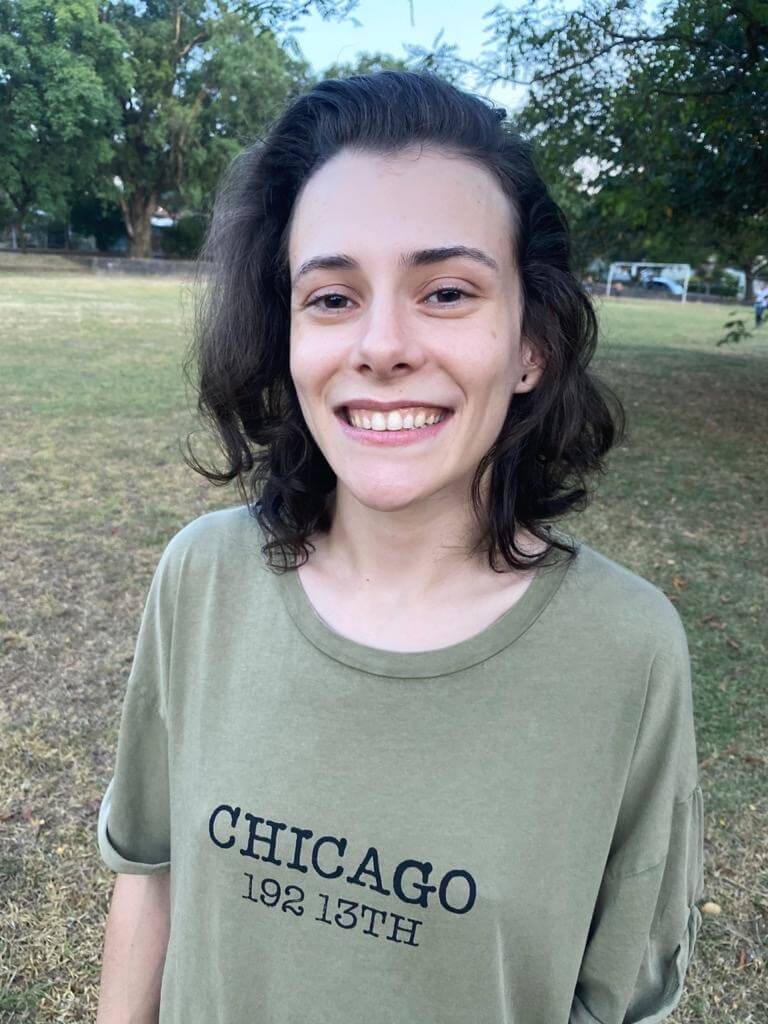
Question 6: I often get asked about practical tips on how to work in videogames. Let’s finish with some personal advice on how to set up the foot into the industry, shall we?
Ilona: The best advice I could give in regards to entering the industry is: just do what you love doing, if you like what you do you will excel in that, making other people like it too. Be excited about your creations and don’t be afraid to ask for feedback from your peers, getting to know people and understanding feedback goes a long way.
Cloé: If you want to thrive as UI/UX Designer in videogames, you have to be curious, communicative, super collaborative, and develop your empathetic side. The best way to achieve this is to study hard and look for the nearest UI/UX and Game community on LinkedIn, Facebook, etc… to find your first opportunity.
Camilla: My tip would be never to stop being curious. I think exploring and trying to do your best in the challenges that come your way is always worth it. Working as a UI/UX Designer I learned that asking questions is often more important than knowing all the answers.
Missae: I agree with all the girls here, explore what you like to do and start doing and getting better at it. If you’re aiming for Ux/Ui, a portfolio is important: don’t just show final images, explain what were the problems you were trying to solve or the experiences you wanted to improve, who is your user and what’s the process you’ve been through to reach your goal. Learn to argue your decisions but also have in mind that you don’t know all the answers, so listen and research before getting stuck on an idea, you’re not designing for you, you’re designing for others.
Regardless of the position you are aiming for you’re gonna work with a lot of different people from different areas and this is AWESOME, but also a challenge, so don’t underestimate soft skills. At least, but not less important, have fun <3.
Marisa: My best advice for getting started is just to get out there and make things! If you want to be a game artist, make game art! Game programmer, program some games! Game writer, get some stories written down! If you can find other people to build things together with, then that’s even better. If at the end of the day you can get something –no matter how basic, or rough, or silly that thing is– then I think you’re in pretty good shape!
Haruki: I’d say, on a more strategic level, know what you want to do and train the specific skills you’ll need to succeed in that role. That may translate into getting a new university degree or maybe just a few online courses to get you prepped. Use the free resources at your disposal (GameDevMap, career websites, LinkedIn…), start contacting companies, and never, ever, throw the towel. Most of us started with internships and naturally evolved into different roles and positions over time – we all have been there, sometimes it’s hard, but with a tad of perseverance and effort, it’s all worth it in the end.
Bruna: This industry can seem so far off, or closed when looking from the outside, but don’t be afraid to reach out to people who are in it! I always like to recommend having a community of people who understand what you’re after and are also chasing their own dream (or living it, why not?) so that you can all support each other all the way there 🙂 Surround yourself with artists, friends and content that excites and inspires you to create things that will inspire others! After all, as Ilona said, if you love what you do, you will excel in it and make people fall in love with whatever it is that you do.
